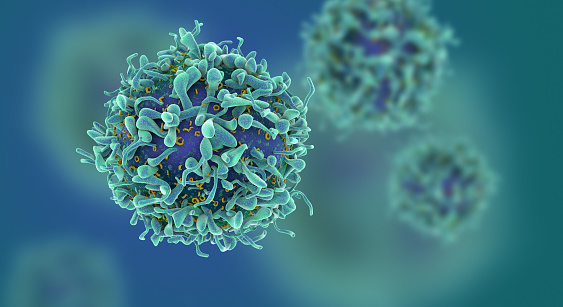
The maker of one of the two approved CAR-T cell therapies appears to be anticipating future demand with plans to open a new manufacturing plant.
Kite Pharma, the maker of Yescarta (axicabtagene ciloleucel) that Foster City, California-based Gilead Sciences acquired in 2017, said Wednesday that it was planning to build the new plant on a 20-acre site in Frederick County, Maryland. The company already makes Yescarta at a plant near Los Angeles International Airport and in the Netherlands. The Maryland facility will be used to manufacture Yescarta and also investigational T-cell receptor (TCR) therapies for solid tumors, the company said.

Solving Healthcare’s Provider Data Problem Starts with Interoperability
Break down the silos. Take control of your provider data.
Kite’s pipeline page lists a single TCR product candidate, KITE-718, a MAGE A3/A6-targeting therapy in Phase I development. The trial page on ClinicalTrials.gov states that it the study, which started nearly two years ago, is designed to enroll 75 patients with cancers that express MAGE A3/A6.
According to the National Institutes of Health, the antigens are expressed in a variety of cancers, including leukemias and multiple myeloma, along with solid tumors like melanoma, synovial cell sarcoma, urothelial cancer, head and neck cancer and cancers of the breast, thyroid, stomach, pancreas, liver, lung, ovaries, esophagus, kidney and prostate.
Although Yescarta and its competitor, Novartis’ Kymriah (tisagenlecleucel) were launched to much fanfare in 2017 as the first ever Food and Drug Administration-approved cell therapies, the diseases they target – heavily pretreated pediatric acute lymphoblastic leukemia and adult diffuse large B-cell lymphoma – represent relatively small markets. By contrast, while cell therapies like CAR-Ts and TCRs in solid tumors remain far behind in development compared with the ones for blood cancers and – particularly in the case of CAR-Ts – face additional challenges like the lack of a single widely expressed and easily targeted antigen, solid tumors are expected to be a much larger market. On the other hand, TCRs have an extra challenge of their own in that they are HLA-typed, meaning they can only be used in patients who fit a particular genetic profile, which in the case of KITE-718 is HLA-DPB1*04:01.
All the same, manufacturing is seen as a critical component to cell as well as gene therapies and to the ability of their makers to provide sufficient scale to meet patient demand – an especially salient consideration given the much larger market size of solid tumors. This is not only because of demand, but because of the delicate manufacturing and logistical processes of the therapies and the time-sensitive nature of getting them to patients. Another CAR-T company, bluebird bio, acquired a 125,000-square-foot manufacturing facility in Durham, North Carolina in November 2017 after years of relying on contract manufacturing organizations like Lonza. At a recent investor conference in New York, members of a panel discussion emphasized that having sufficient manufacturing capacity is an essential consideration for investors in cell and gene therapy companies.
Kite made its mark among CAR-T makers early on with an emphasis on ensuring manufacturing capacity could meet demand when it opened its existing Los Angeles plant of more than 43,000 square feet and specifically dedicated to T-cell therapies in June 2016. Oncologists taking part in the Phase I/II ZUMA-1 trial that led to Yescarta’s approval told BioPharm Insight at the time that thanks to its emphasis on manufacturing, Kite outperformed its competitors in getting the product to patients in a timely manner.
Photo: CGToolbox, Getty Images








